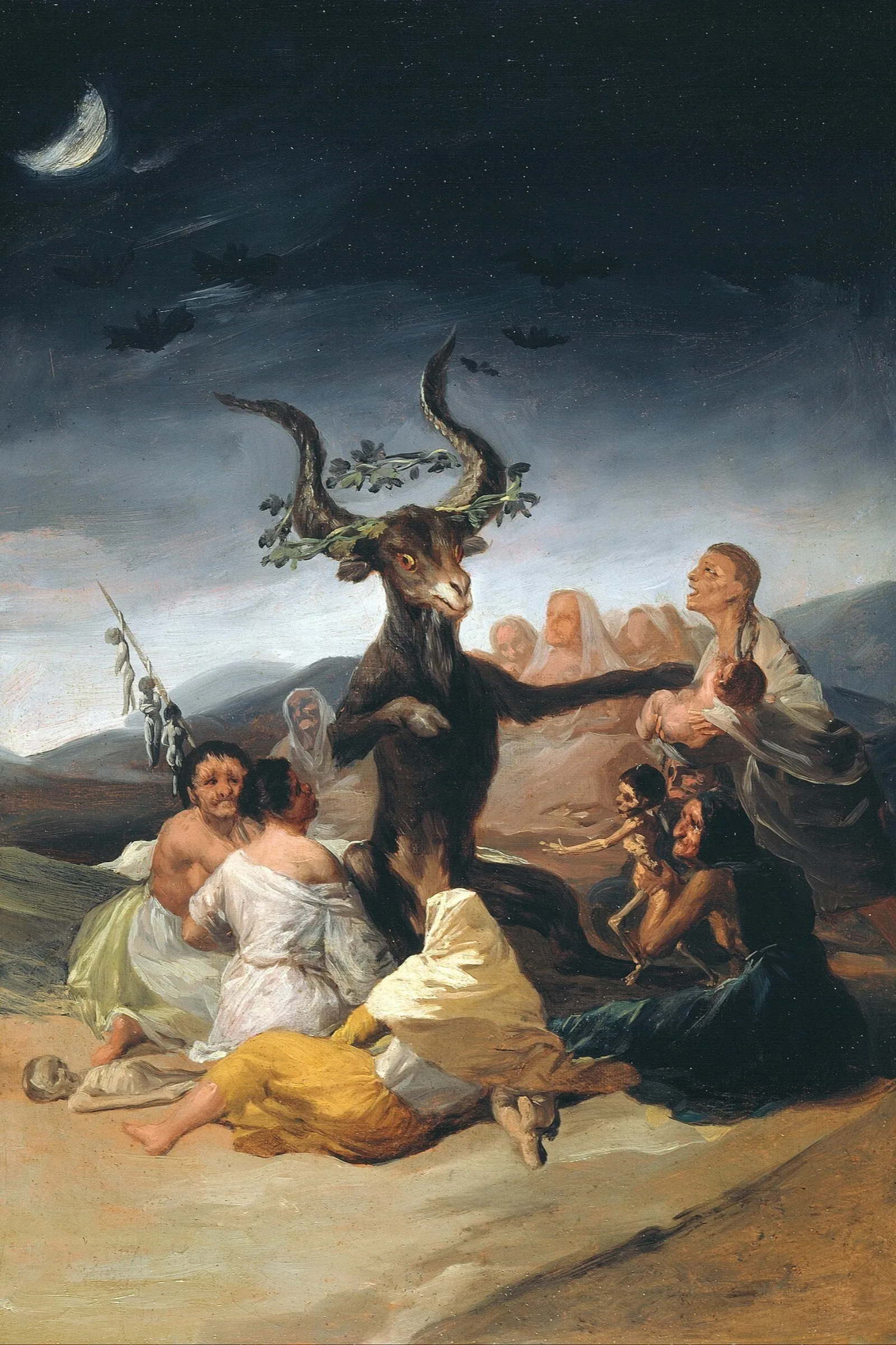Class Description
This course explores the intersection of gender, sexuality, and power through the historical lens of heresy and witchcraft in Early Modern Spain and Latin America. Over the course of five sessions, we will explore how the suppression of “questionable” women—suspected of being witches, heretics, or false Christians—has been deployed across history to regulate gender, sexuality, and power. Using accessible yet provocative critical texts and primary sources, we will examine how the figure of the “witch” was constructed, disseminated, suspected, and persecuted in response to shifting social, economic, and religious forces, with particular emphasis on Spanish and Mexican cases. Through guided discussions and group reflection, we will trace how ideas of unnatural sexuality and the unruliness of women’s bodies became central to systems of domination. We will finish our itinerary by engaging with witch-like figures in surrealist and magical realist Latin American literature.
Elvira Blanco, PhD, is the Associate Director of the Hispanic Institute at Columbia University and managing editor of Revista Hispánica Moderna. Her scholarship focuses on popular religiosity through a cultural/visual studies lens. She has taught literature and cultural studies courses at Columbia University and the Bard Microcolleges program in NYC.
All virtual classes are recorded and made available to participants registered in the class. These recordings are password-protected and available for up to two weeks after the class ends.
What to Expect
Format: Virtual
Class Capacity: 15
Class Style: Mix of lecture and discussion; participation encouraged
Materials List
Required
- Instructor-Distributed Materials including:
- Federici, Silvia. Witches, Witch-Hunting, and Women. Common Notions/Autonomedia/PM Press, 2018. (Chapter 3).
- Homza, Lu Ann. Village Infernos and Witches’ Advocates. Witch-Hunting in Navarre, 1608–1614. Pennsylvania State UP, 2022. (Excerpts).
- Solà, Irene. When I Sing, Mountains Dance. Translated by Mara Faye Lethem. Graywolf Press, 2019. (Excerpts).
- Holler, Jacqueline. “The Devil or Nature Itself? Desire, Doubt, and Diabolical Sex among Colonial Mexican Women.” Sexuality and the Unnatural in Colonial Latin America, ed. Zeb Tortorici. U of California Press, 2019.
- Carrington, Leonora. The Complete Stories of Leonora Carrington. Dorothy Project, 2017. (Excerpts).
- Esquivel, Laura. Like Water for Chocolate. Translated by Carol Christensen and Thomas Christensen. Doubleday, 1992. (Excerpts).
First Reading
- Read Chapter 3 of Federici, Silvia. Witches, Witch-Hunting, and Women. Common Notions/Autonomedia/PM Press, 2018 (PDF will be emailed).
- Additionally, please read this online article: https://www.scientificamerican.com/article/how-social-turmoil-has-increased-witch-hunts-throughout-history/
A Brief Syllabus
- Witch Hunts and the Rise of Capitalism
- Witch Hunts and the Rise of Capitalism continued
- The Social Logic of Witch Hunts in Early Modern Spain
- Sexuality, Sin, Piousness, and Respectability in Colonial Mexico
- Unruly and Magical Bodies in Contemporary Literature
Cost and Registration
5 Sessions, $200 ($180 for Newberry members, seniors, and students). Learn about becoming a member.
We offer our classes at three different price options: Regular ($200), Community Supported ($185), and Sponsor ($215). Following the models of other institutions, we want to ensure that our classes are accessible to a wider audience while continuing to support our instructors. You may choose the price that best fits your situation when registering through Learning Stream.
To register multiple people for this class, please go through the course calendar in Learning Stream, our registration platform. When you select the course and register, you’ll be prompted to add another registrant.
RegisterSupport the Newberry
Your generosity is vital in keeping the library’s programs, exhibitions, and reading rooms free and accessible to everyone.
Make a GiftQuestions?
Call us at (312) 255-3700 or send us an email at adulteducation@newberry.org.
We are in office Tuesday through Thursday, 10 am–6 pm CT.
We are available by email Tuesday through Saturday.
